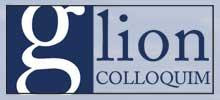Assalamu alaikum and hi all
Over the past decade the Glion Colloquium has established itself as an influential think tank on higher education issues, in particular related to research intensive universities. Every two years the colloquium brings together, generally in Glion, above Montreux, Switzerland, twenty leaders from renowned universities and university organizations, along with influential figures from business and government, especially from Northern America and Europe, but also from leading institutions in other parts of the world.

The Glion Colloquium was launched in 1998 and immediately drew attention with the publication of “The Glion Declaration: the University at the Millennium”, prepared for the UNESCO World Conference on Higher Education in the 21st Century, held in Paris in October 1998.
In 1998 the Glion Colloquium identified several challenges facing higher education in the new millenium through a survey done on the participants of the colloquium. These challenges include:
1. The changing environment
Globalization
The influence of Technology
2. Missions
Responsive and responsible universities
The changing shape of research universities
Emergence of competitors to traditional universities
3. Students and teaching
Students
Teaching
4. The academic profession
The changing role of teachers
Tenure
Developing a new generation of staff
5. Higher education finance
Securing revenue
Reducing costs
6. Governance
Main shortcomings
Ways to improve university governance
7. Comparing the United States and Western Europe
In discussing the comparison between universities in the United States to that of Western Europe, Weber (1999) identified among others, the original institutional setting and the different roles of the Rector/Vice Chancellor of the two continents with the former more inclined in finding investment, funding and sponsorship opportunities.
Further, the administration of American universities is apparently less constrained by public rules or direct political intervention. Arguably the additional freedom granted to the American universities is cited by many as the reason behind the excellent performance of the American universities in the annual Times Higher Education Index (THEI).
In 1998 the Glion Colloquium identified several challenges facing higher education in the new millenium through a survey done on the participants of the colloquium. These challenges include:
1. The changing environment
Globalization
The influence of Technology
2. Missions
Responsive and responsible universities
The changing shape of research universities
Emergence of competitors to traditional universities
3. Students and teaching
Students
Teaching
4. The academic profession
The changing role of teachers
Tenure
Developing a new generation of staff
5. Higher education finance
Securing revenue
Reducing costs
6. Governance
Main shortcomings
Ways to improve university governance
7. Comparing the United States and Western Europe
In discussing the comparison between universities in the United States to that of Western Europe, Weber (1999) identified among others, the original institutional setting and the different roles of the Rector/Vice Chancellor of the two continents with the former more inclined in finding investment, funding and sponsorship opportunities.
Further, the administration of American universities is apparently less constrained by public rules or direct political intervention. Arguably the additional freedom granted to the American universities is cited by many as the reason behind the excellent performance of the American universities in the annual Times Higher Education Index (THEI).


No comments:
Post a Comment